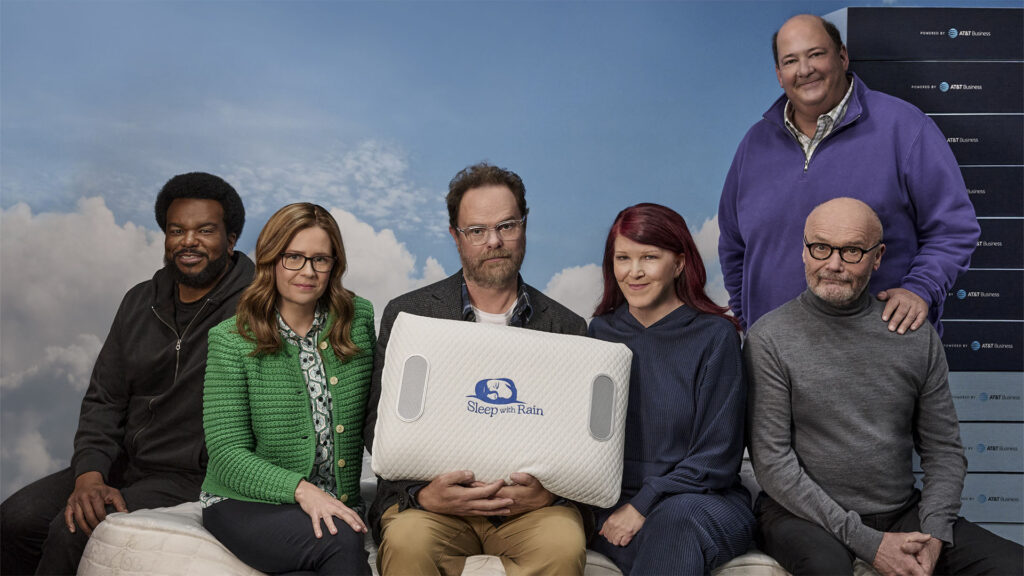Scott Monty, CEO of Scott Monty Strategies and our Livecast host for the day, set the tone. “We’re seeing a forced digital transformation right now. Businesses are shifting how they are marketing their business, but they’re also shifting their business models entirely.” Monty made the case that this moment represents a big opportunity for brands to move from a selling approach to a brand-building approach.
Monty referenced the Chinese symbol for crisis, which is often said to be a combination of characters meaning “danger” and “opportunity.” In reality, Monty said, “It is danger at a point of juncture. We are at an incredible juncture right now.”

Without question, he said, new consumer habits are already driving digital transformation that will stick with us long after the pandemic subsides. A lover of classic literature, Monty quoted Ovid’s Metamorphoses to illustrate the point: “Ill habits gather by unseen degrees / As brooks make rivers, rivers make seas.”

Crises tend to test the mettle of leaders in all quarters and this one is no different, said Monty. He urged marketing leaders to dig deep and summon five qualities he considers essential in this moment.
- Courage: “A resistance to fear, a mastery. Not an absence of fear, as Mark Twain said. This is not bravado. True courage means putting yourself at risk to protect the interests of others.”
- Resilience: “When you get knocked down, you have to get back up.”
- Empathy: “We’re all in this together. If we show a sense of vulnerability along the way, it helps people relate to us.”
- Generosity: “Putting yourself out there and doing better. This is where corporate good will comes in.”
- Integrity: “Doing the right thing when no one’s watching you. This is your corporate purpose.”
Monty raved about some of the good works companies have been doing in this moment when they are needed the most. In fact, he’s been keeping a running list here.
Jeremiah Owyang, Industry Analyst & Founding Partner of Kaleido Insights, passed along some wisdom to the online audience from the comforts of a Bambi Airstream trailer at his Bay Area home base. “When your computer has a virus,” he said, “you have to reformat it. Now our world has a virus and it’s time to reformat society. Yes, this is a scary, horrible time but it is also a chance for innovation. In downturns and uncertain markets, we often see winners emerge.”
Owyang served up a 20-year look back at how crisis has often produced positive (if radical) change in business. “The dot-com bust birthed Amazon. We also saw companies launch their own transparent, two-way communication styles. With social media, we saw the rise of Facebook and LinkedIn and angry bloggers who transformed forever the way that companies communicate with customers.”
“In the next phase, in another market downturn, we saw the rise of AirBnb and Uber, birthed during a recession. We saw companies launch on-demand models and subscription models, marketplaces. Now it’s happening again but I want to be clear: this is not like any of those situations before. Those seemed like little drops in the market compared to what we’re dealing with now. This is something far bigger.”

Owyang calmly but boldly laid out five phases he expects companies to go through in the coming weeks, months and perhaps years, noting we are in the first of those five phases right now. “We’ve all been distributed but we’re all connected now, sequestered in our homes. People are at home just reeling from this. The front line people–health care workers–are overtaxed and they are struggling. Every single chain has been disrupted: the supply chain, the food chain, the health care chain, your communication chain and even your relationship chain has been disrupted and is reforming in a new way.”
The second phase, Owyang said, will be for companies to support those who are affected, especially front-line health care workers, in whatever way they can regardless of whether it makes economic sense in the moment. He added that the third phase is likely to be defined by new business models that form as we reformat to suit the shut-in economy. “We have to shift how we market to people, how we sell to them and solve their needs. We need to see new autonomous systems in health care–for example, tele-health–along with tele-learning, autonomous cars and autonomous supply chains.”
Phase four will be a slow return to normal, Owyang said. “We’re going to integrate back into the real world. We don’t know when the virus will go away but we will have a slow re-emergence.”
His fifth phase? “Can I just be honest?” Owyang asked rhetorically. “I have no idea. I have no idea what the world will look like. But I will tell you this: I believe it will be filled with data to drive decisions because we are seeing companies pull back 30% of their cost or slashing 50% of their workforce. We’re going to see the rise of AI, autonomous workers, chat bots, big data and machine learning.” He notes that, while our relationships will still be interconnected, we may see the back-end supply chains become automated more rapidly. “That’s both wonderful and scary,” he added.
Owyang ended with a prediction that ideas for innovation–once the domain of centralized teams–will come from new places. “The innovation will now happen on the edges and fringes of your company. Your employees are scattered and so are your partners and customers so you have to innovate at the edge.”
Against the current backdrop of societal uncertainty and economic volatility, any reassurance or measured presentation of what might come next arrives as a welcome jolt of normalcy. To that end, we thank Monty and Owyang for providing us with a smart, considered moment.
To learn more about upcoming Brand Innovators Livecasts, go here.




